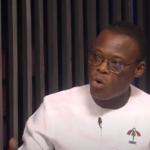
Emergencies have always been the crucibles in which constitutions are tested. They arrive without warning: a violent conflict, a pandemic, a devastating flood, a sudden coup attempt.
In such moments, the ordinary pace of governance seems inadequate. Citizens demand swift action, leaders feel compelled to act, and the temptation to sideline constitutional safeguards becomes immense.
Around the world, many democracies have faltered at precisely this point, granting leaders sweeping powers and discovering only too late that liberties lost in haste are not easily reclaimed.
Ghana’s story is both cautionary and inspiring. Having endured years of authoritarian misuse of “necessity,” the country has consciously crafted a constitutional framework that insists emergencies must be managed within the rule of law.
The 1992 Constitution, reinforced by the Emergency Powers Act of 1994, allows the President to act decisively when the life of the nation is at risk, but it refuses to hand him a blank cheque.
Parliamentary approval, judicial review, and procedural safeguards ensure that emergency powers remain extraordinary but never unchecked. It is a legal architecture born out of bitter lessons from the past, and it has become one of Ghana’s most remarkable democratic achievements.
What Qualifies as an Emergency?
The Constitution sets a deliberately high threshold. A “state of emergency” arises only in the face of existential threats: war, internal conflict, natural disasters, or circumstances that deprive communities of life’s essentials. Article 31(9) provides examples but uses the word “include,” making clear that the list is illustrative rather than exhaustive.
This means that crises such as a pandemic fall within its scope. What matters is severity—ordinary unrest or political inconvenience does not suffice. Emergencies are reserved for the moments when the very survival of the community is at stake.
This high bar is no accident. It reflects Ghana’s determination not to trivialise extraordinary powers. Emergencies are not a convenient tool for governments facing protest or dissent; they are legal responses to life-threatening crises. By setting the threshold high, the framers sought to ensure that emergency rule would be rare, not routine.
Continuity of the Constitution
One of the most profound principles embedded in Ghana’s law is constitutional continuity. An emergency does not suspend the Constitution. Rather, it permits temporary derogations from certain rights when measures are “reasonably justifiable” to deal with the crisis.
This doctrine ensures that while liberty bends, it does not break. The Constitution continues to speak, courts remain open, and legality endures even in the storm.
This stands in contrast to the martial law tradition where constitutional guarantees disappear altogether. In Ghana, the Constitution is never eclipsed. It adjusts, but it survives. This insistence on continuity is perhaps the greatest protection against dictatorship disguised as necessity.
Declaring an Emergency
The process is as important as the power. Under Article 31, the President cannot simply announce an emergency.
He must act on the advice of the Council of State, a constitutional advisory body of experienced public figures. Once proclaimed, Parliament must be informed immediately and given the “facts and circumstances” justifying the declaration. Within seventy-two hours, legislators must decide whether to approve or revoke it.
Even with approval, emergencies are strictly time-bound. Without parliamentary approval, the proclamation lapses after seven days.
With approval, it lasts up to three months. Beyond that, extensions are permitted only one month at a time, each requiring a resolution passed by a majority of all Members of Parliament.
Parliament retains the power to revoke at any time. In short, emergencies in Ghana live on borrowed time: their survival depends on continuous democratic consent.
The geographical scope is equally precise. An emergency may cover the entire nation or be confined to a troubled region.
When violence engulfed Dagbon in 2002, the state of emergency applied only to the affected area, not to Ghana as a whole. By tailoring scope, the Constitution prevents overreach and ensures that unaffected communities continue to enjoy normal freedoms.
Rights in the Midst of Crisis
Emergency powers often conjure images of detention without trial. Ghana’s Constitution acknowledges that extraordinary detention may be unavoidable, but it surrounds it with rigorous safeguards. Article 32 requires that anyone detained must be given written grounds within twenty-four hours.
Families must be notified within the same period. After ten days, a tribunal of three superior court judges must review the detention.
That tribunal has power to order release and compensation. Thereafter, cases are reviewed every three months by fresh panels, ensuring impartiality.
Parliament must receive monthly reports on the number of detainees, and the names must be published in the Gazette and media. At the end of the emergency, all detainees must be released immediately.
These rules transform emergency detention from a secretive executive power into a process subject to judicial, parliamentary, and public scrutiny. Few constitutions go this far in embedding safeguards at the very heart of extraordinary power.
The Emergency Powers Act, 1994
To operationalise Articles 31 and 32, Parliament passed the Emergency Powers Act. It sets out the specific measures the President may take during an emergency: curfews, detention, requisition of property, deportations, warrantless searches, suspensions of statutory rules, and evacuations.
Every measure must be “reasonably justifiable” and must be formalised in Executive Instruments published in the Gazette.
The Act mirrors constitutional safeguards. It restates detainee rights, bars military courts from trying civilians, requires compensation for losses, and demands parliamentary reporting. In doing so, it gives the executive the tools needed to act, but always within the bounds of legality.
Contrast this with the Imposition of Restrictions Act, hurriedly passed in 2020 during the COVID-19 pandemic.
That law sought to impose lockdowns and restrictions without declaring a state of emergency. In 2023, the Supreme Court struck it down as unconstitutional, ruling that government cannot sidestep Article 31’s carefully constructed safeguards. The Court’s decision was a reminder that convenience cannot replace constitutional procedure.
Lessons from History
These safeguards were forged in the fire of Ghana’s political past. The 1960 Constitution, lacking a justiciable Bill of Rights, allowed Kwame Nkrumah’s government to wield the Preventive Detention Act to imprison opponents indefinitely.
In the notorious Re Akoto case of 1961, the Supreme Court refused to strike down these detentions, declaring that the “Declaration of Fundamental Principles” was not enforceable law. This abdication remains a low point in Ghana’s legal history.
The 1969 and 1979 Constitutions introduced stronger protections: a Bill of Rights, Council of State oversight, and time-bound emergency provisions. Though both republics were short-lived, their texts laid the foundation for the 1992 Constitution.
The military regimes that followed—ruling by decree and preventive custody—showed the dangers of unrestrained power. When the framers met in 1991–92, they resolved never again to leave emergencies to executive whim.
The Courts Find Their Voice
Judicial oversight has travelled a long road. In Re Akoto, the judiciary was silent. In the Fourth Republic, it has found its voice.
In NPP v. IGP (1993), the Supreme Court struck down police permit requirements for demonstrations, holding that rights could only be limited when strictly necessary.
In Kpegah v. Attorney-General (2001), the Court confirmed it had jurisdiction to review whether emergency extensions were justified. And in Prof. Appiagyei-Atua v. Attorney-General (2023), the Court decisively ruled that the government’s attempt to use ordinary legislation during COVID-19 was unconstitutional. Emergencies, the Court insisted, must follow constitutional procedure.
This transformation—from deferential silence to assertive oversight—illustrates the judiciary’s central role in safeguarding democracy under strain.
Emergencies in Practice
Since 1992, Ghana has declared emergencies sparingly. The 1994 ethnic conflict in the Northern Region and the 2002 Dagbon crisis both triggered formal emergencies.
In each case, Parliament approved and renewed monthly, curfews were imposed, and tribunals reviewed detentions. These emergencies ended within defined periods, demonstrating the system at work.
By contrast, floods and even the COVID-19 pandemic were managed through ordinary laws or ad hoc measures, revealing governments’ reluctance to invoke Article 31. But the Supreme Court’s 2023 ruling suggests that in future, formal emergency powers must be used when crises truly threaten the nation.
Parliamentary Oversight and Civil Liberties
Parliament’s role is central. It approves declarations, extends them, and may revoke at any time. Monthly reports on detentions ensure legislators are informed, and debates allow opposition voices to scrutinise government action.
Civil liberties remain guarded by non-derogable rights. Life and freedom from torture cannot be suspended. Courts remain open. Civilians cannot be tried by military courts. Compensation is required for losses. Families are notified, names are published, and at the close of an emergency, rights are instantly restored.
Together with Ghana’s vibrant media and civil society, these safeguards create a dense web of accountability that ensures emergency powers cannot quietly transform into authoritarian rule.
Conclusion: Necessity Without Tyranny
Ghana’s constitutional order reveals a profound truth: emergencies do not suspend law—they test it. The 1992 Constitution and the Emergency Powers Act embody the conviction that survival and liberty are not mutually exclusive but mutually reinforcing. By demanding advice, approval, review, and reporting, Ghana ensures that necessity does not devour legality.
This may frustrate governments who seek swift action unencumbered by oversight. Yet it is precisely these safeguards that preserve trust, and without trust no emergency response can succeed.
Ghana’s story, scarred by the abuses of its past but guided by the wisdom of its present, shows that it is possible to confront crisis without abandoning democracy. In the eye of the storm, the law remains a compass—and for Ghana, that compass has proven indispensable.
The writer is a lecturer at the Department of Food and Nutrition Education, Faculty of Health, Allied Sciences and Home Economics Education, University of Education, Winneba.



